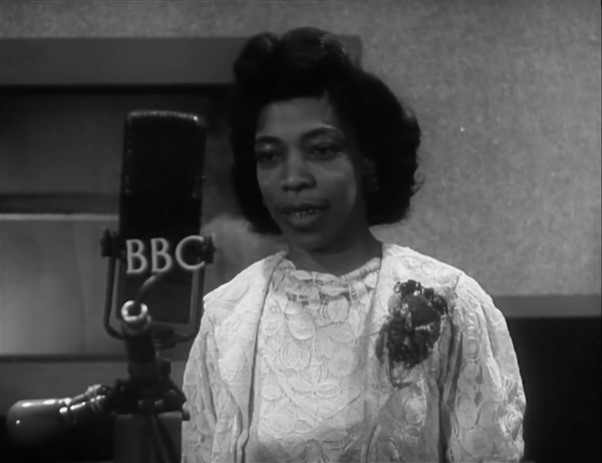Una Marson
Una Marson was a journalist, editor, playwright and poet committed to advancing Black people’s rights and building the literary tradition in the Caribbean. Born in 1905 in Jamaica, Marson completed her education at Hampton School for Girls before moving to Kingston to work for The Gleaner newspaper. She went on to become the editor of Jamaica’s first women’s magazine, The Cosmopolitan, in 1929, then relocated to London, where she worked as a secretary for the League of Coloured People, editing their publication The Keys and as a broadcaster for the BBC’s Caribbean Voices. The programme was an avenue for writers like Derek Walcott and Sam Selvon to read their poetry and short stories aloud to an international audience of listeners. Marson joined and volunteered with many Pan-African and women’s rights organisations, making her one of the earliest advocates of international Black feminist activism.
Marson struggled to begin a career in the deeply racist society that was England in the 1930s. Her experiences, activism and feminist politics informed the diverse forms and subject matter of her three volumes of poetry: Tropic Reveries (1930), Heights and Depths (1931), The Moth and the Star (1937), as well as her three plays, At What a Price? (1933), Pocomania (1938) and London Calling (1938).
Marson became increasingly involved in anti-colonial politics, and after Benito Mussolini invaded Ethiopia she became secretary to Emperor Haile Selassie during his exile in Geneva in 1936. However, this was also a dark period in her life. She suffered a nervous breakdown and moved back to Jamaica, where health issues plagued her until her death in 1965. Despite her impressive achievements Marson was all but erased from British and Caribbean history, but due to the efforts of historians in the past 30 years important work has been carried out to recover her legacy.

